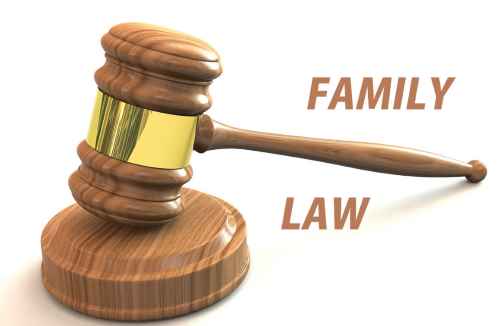Legal Questions? / Legal Answers!

Executor Duties Explained
"If your the Executor of a will chances
are you were picked because you could handle
the final requests of the deceased.They needed
someone who loved them, who was strong enough
to help the family, and who would follow
all their last requests. I wonder if when
they asked you to take on this important
position for them if they knew... there is
not only a lot of work to do, but a cost
involved as well. If the arrangements have
not already been made and paid for, that
will have to be addressed.
The Obituary write ups usually cost per word.
If the person was in subsidized housing emptying
the apt within 30 days becomes your responsibility.
You can pay rent for 30 days to buy you sometime,
but it will have to be the full amount. You'll
get no help from the State or Federal Govt
Programs. My advice would be, get that family
help as soon as possible"
When you file a death in Probate Court, it
will cost you a percentage of the total amount
of the whole estate you now have control
over. That is important because if a home
is involved.. the value goes up. If they
had a home but no money, that bill becomes
your responsibility. I had a friend who's
brother had a home and they wanted to value
it at $180.000. This would have cost him
out of pocket, close to $400.00 just to file
the will in Probate. However, the bank was
the one who really owned it. It helped to
be able to show that, because the probate
cost amount went way down.
List OF Maine Probate Filing Fees ( Costs Per $10,000 )
Some More Very Important Information To Know
If you have been asked to be the Executor
of someone's will there is a list of things
I would suggest you get them to put on paper
and put with the will. By having these items
ready, you will be able to get things accomplished
quicker and with less interference. Without
them, you will have to ask for the information
you need. You will be asked by everyone why
you have control of the accounts. You'll
say your the Executor of the will and you'll
be asked to show proof. I know this may not
seem like a big deal and I know you can show
proof easily, but you have no idea what the
person owes, or what they might have taken
out monthly (netflicks) from their account.
But I have a better example below.....
"So, same friend who told Probate Court
the bank owned his brother's house. The bank
owned it because it had no equity. It had
no equity because as he got sicker, he had
to take out a loan from the bank to have
his bathroom remodeled to accommodate his
wheelchair. He died before he paid off the
loan. When my friend proved to the bank that
he was the executor, so he could get the
money out of his brother's account to bury
his brother, the bank took all the money
in the account! Why? To cover as much as
their loan for that bathroom remodel as possible.
Had he been able to access the account first
and take the money, without first telling
the bank....the bank loan would have just
become a creditor that wasn't going to get
paid. He went to probate court with no money.
His poor brother was placed on hold for two
weeks because he had no money to do anything
with the body. He still "owned"
the house as Executor and had to maintain
all payments to the bank, and pay all the
incoming bills. His brother's passing and
the Executor status he asked him to do, personally
cost him hundreds of dollars. This is why I suggest you use their debt
card and password to keep control of their
assets in the bank or C.U. they have accounts
in. There is NO law saying you must tell
the Bank or C.U. that the person has passed
and your now in charge of the money. Make
sure you check the deceased's bills for any
loans that may have a balance due from the
same Bank or C.U. they keep their money in. ...BTW you might think my friend had a right
to bring a lawsuit against the Bank and you
might be right. But that takes time and between
dealing with the loss of his brother and
the loss of the money to help take care of
him, he just gave up and paid for it all."
Some Credit Unions and Banks give out free
life insurance polices on their members.
You should check with the deceased credit
union or bank to see if there might be one.
I personally have been offered a free $1.000.00
policy from my Credit Union. Doesn't hurt
to ask.
You may want to leave your pin number to
your debt card somewhere inside the will
for the Executor to access. Just the 4 numbers
written without an explanation as to what
the numbers pertain to is all you should
do. You and the Executor already know why
is is there. You can use all the money left
in the checking accounts and saving accounts
to help you pay all costs relating to the
deceased. You should be keeping an account
of all debts, money spent and balance of
all money left. Check the credit cards and
stop all automatic withdrawal payments that
may be still activated. You should also get
control of their cell phone. If it is willed
to a relative, it should only be given to
them once the phone plan has been stopped.
Remember, the amount for the cellphone bill
may be withdrawn automatically. Stop all
cellphone payments.
Once you get the money under control it will
be a bit easier to move forward. Having a
list to go by might help. I have made up
a list and although it may not cover every
avenue, it should give you a starting place.
Executor Duties List - A Place To Start
The first thing you may need to do after
arrangements have been made to get the body
prepared is to prepare the Obituary. Obituary write ups usually will cost you
per word. The Executor in charge of the will
and is usually the one who has the responsibility
of writing it, as well as paying for it.
There are some basic duties that an executor
is required to perform. But, the full extent
of an executor's duties depends entirely
on the nature of the estate being probated.
The duties of an executor officially begin
with the application for probate of the estate.
The Executor files a copy of the will with
the Probate Court. As Executor, you will
need to obtain copies of the Death Certificate
to be seen or sent to those creditors that
ask for one.
One of the primary duties of an executor
or trustee is to protect the deceased assets
from loss. The first step in doing that is
to create an inventory of all of the deceased
assets.That includes money, personal property,
and real estate. The next step is creating
a list of financial or legal liabilities
and valid creditors. All valid creditors
must be notified and then paid before the
remaining estate can be distributed to heirs.
Taxes must also be paid, if applicable.
The Final Steps In Administering An Estate
In the case of a probate proceeding, all
steps are done under the supervision and
with the approval of the judge in charge
of the probate. You cannot act on your own.
After the creditors and taxes have been paid,
the remaining assets can then be distributed
to heirs and beneficiaries. In some cases,
it may be necessary to sell property or create
trusts, if required by the provisions of
the will or some other estate planning documents.
It is important to remember that the executor
will be expected to provide a final accounting
of every transaction related to the estate.
Therefore, it is crucial that you keep accurate
records of those transactions as you go.
Once the accounting is filed and approved
by the court, the estate can be closed.he
final
you would like to comment feel free to e-mail
me at
smtracy8@gmail.com
My Final Thought...

"Their are many differences between an Executor
and a Beneficiary. The Executor is in charge
of all aspects of the will. A beneficiary
receives money or other benefits from a benefactor.
For example, the beneficiary of a life insurance
policy is the person who receives the payment
of the amount of insurance after the death
of the insured. Being a Beneficiary to a
life insurance policy or other forms of Benificery
benefits, means you get your Benificery money
when you show a death certificate. The Beneficiary
of a Will waits until the Executor is ready
to divide the property or monies left, to
the relatives in the will. REMEMBER: You
should review life insurance polices at work
or any other "benefits" you have
a Beneficiary on, to ensure you have who
you want as the Beneficiary to your money.
If you been working for years and signed
it over to your ex wife years ago and never
changed it...she gets it!"

